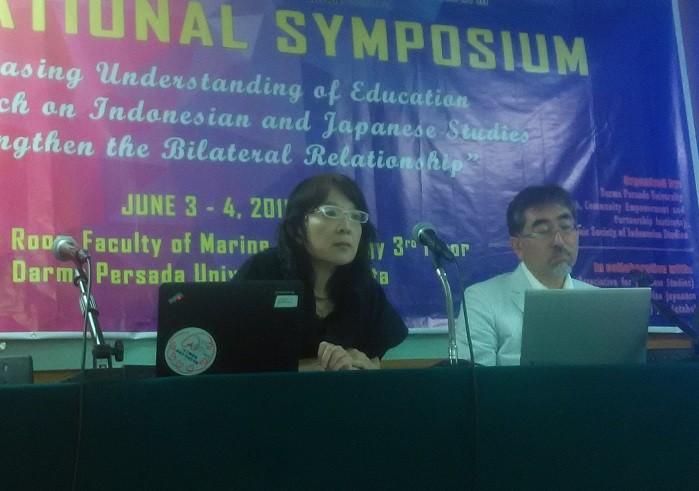Popular Reads
Top Results
Can't find what you're looking for?
View all search resultsPopular Reads
Top Results
Can't find what you're looking for?
View all search resultsLGBT community's ‘secret language’ related to oppression: Researcher
The difficulties that the Indonesian lesbian, gay, bisexual, and transgender (LGBT) community face in expressing their opinions amid recent rising hostilities may prompt the reappearance of secret languages among its members.
Change text size
Gift Premium Articles
to Anyone
The difficulties that the Indonesian lesbian, gay, bisexual, and transgender (LGBT) community face in expressing their opinions amid recent rising hostilities may prompt the reappearance of secret languages among its members.
According to Yoshimi Miyake, a professor at Akita University, the secret terms in the community initially appeared to express topics related to their different-sex orientation and activities. However, the terms then went to public domain as the public became more open to them.
“The oppression is a small factor behind the creation of the secret languages. But the connection will be stronger as the oppression gets more severe,” she told thejakartapost.com after an international symposium at Darma Persada University (Unsada) in Jakarta on Sunday.
Yoshimi has researched the language among LGBT communities in Japan, dubbed Onee-kotoba, and that in Indonesian LGBT communities in recent years. She came to the conclusion that Indonesian transgender language used creative characters and formed a secret language.
Quoting Tom Boellstrof, an American anthropologist who conducted similar research in Indonesia in 2005, she highlighted that the Indonesian LGBT community absorbed LGBT expressions from around the world and blended them into their own.
The secret language came to Indonesia around the 1970s and became widely used by heterosexuals along with the acknowledgement of its existence in the public domain.
“It is shocking to know that LGBT people are now prohibited from showing their style on Indonesian television. It should not be happening, it’s against their rights,” Yoshimi said.
The Indonesian Broadcasting Commission (KPI) enacted a discriminatory rule against LGBT people. It openly discouraged broadcasters, television and radio stations from running programs that promoted the activities of the LGBT community.
The KPI argued that the measure was part of an effort to protect children and teenagers from exposure to their lifestyle.
In Japan, she said, transgender and sexual orientation issues were never a problem as it was part of the long culture of the country. “Kabuki performers are exploring both sexualities to better live their performance. There is no such hostility as it is against the law,” Yoshimi said. (ags)










